10 Best Digital Cameras in 2024 — Reviews & Top Picks
Last Updated on
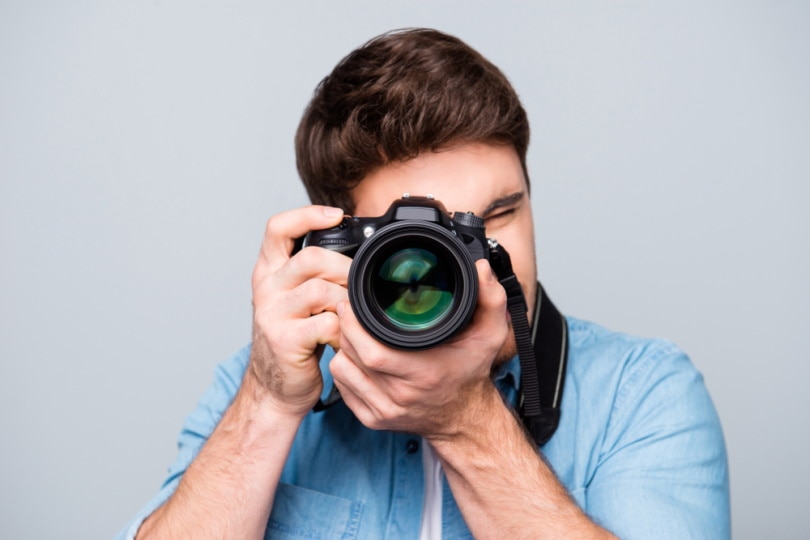
The age of film reigning supreme is long over, and if you want the best possible photos, you’ll want a digital camera. But a good digital camera is going to cost you, and the last thing that you want to do is overpay for something that doesn’t do what you want.
That’s why we highlighted 10 of the best digital cameras on the market today, with comprehensive reviews for each one so you know exactly what they offer. There’s also a buyer’s guide to help you narrow down what you need and what each specification means. By the end, you’ll know exactly what’s out there!

A Quick Comparison of Our Winners (2024)
| Image | Product | Details | ||
|---|---|---|---|---|
| Best Overall |
 |
FujiFilms X-T30 Digital Camera |
|
CHECK PRICE |
| Best Value |
 |
Ricoh WG-6 Digital Camera |
|
CHECK PRICE |
| Premium Choice |
 |
Pentax K-3 Mark III Digital Camera |
|
CHECK PRICE |
 |
Pentax K-1 Mark II Digital Camera |
|
CHECK PRICE | |
 |
Ricoh Digital Camera GR III Digital Camera |
|
CHECK PRICE |
The 10 Best Digital Cameras
1. FujiFilms X-T30 Digital Camera — Best Overall
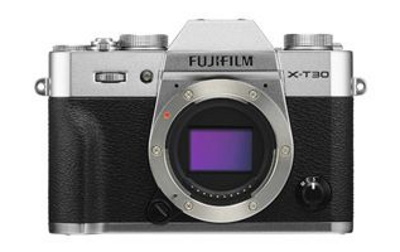
| Camera type | APS-C mirrorless |
| Resolution | 26.1 MP |
| Weight | 13.5 ounces |
| Battery type | Rechargeable lithium-ion |
| Magnification | Adjustable with lens (not included) |
If you’re looking for the best overall digital camera that you can purchase in 2022, it’s hard to top the FujiFilms X-T30. It’s not a DSLR; instead, it uses an APS-C mirrorless design that makes it a great choice to capture high-quality video and photos.
It’s easy to use, and it’s the rare camera that gives you professional-quality results while remaining amateur friendly. The entire camera is both lightweight and durable, so it’s easy to take wherever you need it.
However, if you are going with the FujiFilms X-T30, know that it doesn’t come with any lenses. So, you’ll have to pick out and purchase a lens. But that means you get to get precisely what you want and you’re not spending money on a lens that you wouldn’t otherwise get.
- Outstanding mix of price and performance
- Easy to use
- Enables you to take photos and record
- Phenomenal quality
- Up to 4K recording
- Lightweight and portable
- Does not come with any lenses
2. Ricoh WG-6 Digital Camera — Best Value
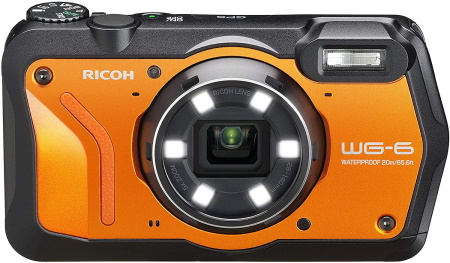
| Camera type | Compact |
| Resolution | 16 MP |
| Weight | 6.8 ounces |
| Battery type | Rechargeable lithium-ion |
| Magnification | Up to 5x |
The Ricoh WG-6 might not be able to keep up with the more expensive cameras on this list, but it’s an outstanding choice if you’re on a tight budget. It can take great photos, but if you’re looking to capture videos, it can record in 4K too.
It also enables you to magnify things up to 5x, which is a decent magnification range for a compact digital camera. However, while it’s easy to use and extremely durable and rugged, it’s not as upgradable as some other options.
So, if you want more features down the road, you’ll have to get a different camera. Furthermore, while a 16-megapixel camera is enough for some high-quality shots, it’s not as high quality as some other cameras out there.
That only matters if you want to print the photos in a much larger size, but it is a factor that you need to consider. Still, with everything that it offers at this price point, it’s not hard to see why it’s the best digital camera for the money.
- Affordable
- Works in tons of different environments —rugged
- Can shoot videos in 4K
- Easy to use
- Decent magnification range
- Lightweight option
- Not upgradable
- Lower photo resolution compared to some other options
3. Pentax K-3 Mark III Digital Camera — Premium Choice
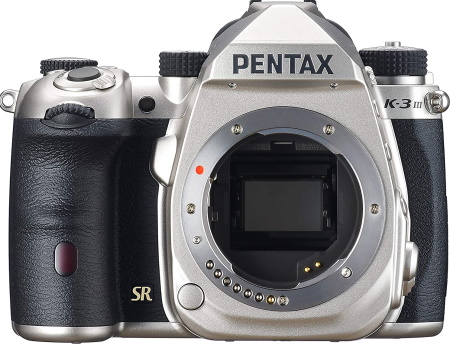
| Camera type | DSLR |
| Resolution | 25.73 MP |
| Weight | 1.8 pounds |
| Battery type | Rechargeable lithium-ion |
| Magnification | Adjustable with lens (not included) |
Compared to some other cameras out there, the Pentax K-3 Mark III is expensive. But when you look at all the extra capabilities that it offers, it’s not hard to see why we think that it’s worth every penny.
You get a high photo resolution, and if you’re trying to capture objects in motion, you’re not going to find a better choice. This camera can take an astounding 12 images per second, which means you won’t miss anything.
It also means if an object is moving quickly, the camera shouldn’t have any problem getting everything in detail, without any blurriness. The camera also comes with an outstanding autofocus feature that can clear things up for you in a fraction of a second.
While you’re undoubtedly going to spend more on this camera, it is one of the most durable options on this list, so you won’t have to worry about needing to replace it anytime soon.
However, it does not come with any lenses, so when you’re looking at the cost of the camera, keep in mind that you’ll need to spend more to even use it for the first time. While this enables you to get precisely what you need, it does up the overall cost.
- High photo resolution
- Easy to use
- Easy to upgrade
- Fast photo capabilities — up to 12 images per second!
- Effective autofocus system
- Extremely durable option
- Does not come with any lenses
- Expensive
4. Pentax K-1 Mark II Digital Camera
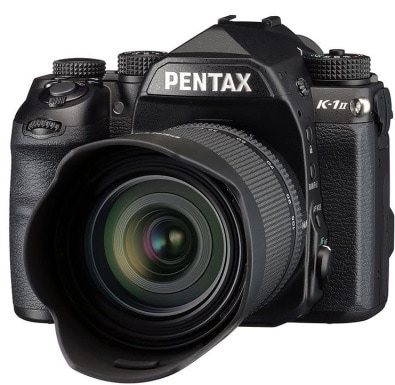
| Camera type | DSLR |
| Resolution | 36.4 MP |
| Weight | 2.23 pounds |
| Battery type | Rechargeable lithium-ion |
| Magnification | 7 to 5.2x (adjustable with more lenses — not included) |
The Pentax K-1 Mark II is an outstanding choice. It’s similar to the K-3 Mark III, but it has a lower ISO and is not as capable of imaging moving objects.
However, if you are taking photos of a still area, it has a high photo resolution at an impressive 36.4-megapixels. This is also a bundle deal, so you get a top-notch DSLR camera and a 28-105mm lens that enables you to use the camera right out of the box.
But if you do want additional lenses, it’s easy to upgrade, and the entire camera and lens are weather resistant, so you don’t need to worry if it starts raining at your next photoshoot.
Even with all these top-notch features and customizable options, the Mark II is easy to use and comes with features like shake reduction that make it an excellent choice for amateurs and professionals alike.
It is expensive, though, and it’s hard to say that it’s better than the Mark III in most situations.
- Comes with everything that you need to get started
- High photo resolution
- Easy to use
- Weather-resistant design
- Easy to upgrade
- Shake reduction feature — great for amateurs!
- Lower ISO compared to Mark III
- Not great at capturing objects in motion
- Expensive
5. Ricoh Digital Camera GR III
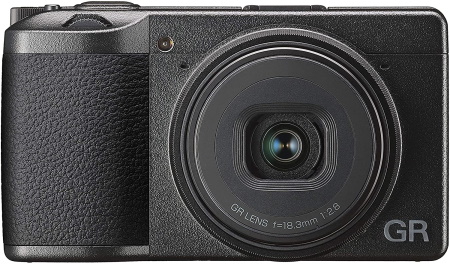
| Camera type | Mirrorless |
| Resolution | 24.2 MP |
| Weight | 1.52 pounds |
| Battery type | Rechargeable lithium-ion |
| Magnification | 1x to 2.8x |
The Ricoh Digital Camera GR III is far from a perfect digital camera, but it’s still an option worth considering depending on what you need and what you’re looking for in a digital camera.
It’s a mirrorless digital camera that is durable and easy to use, and compared to high-end DSLRs with a similar photo resolution, it’s a more affordable choice.
However, it’s not easy to upgrade. With a DSLR, you can just purchase a new lens and slap it on to change the magnification range, but that’s not the case with this camera.
It also has a limited magnification range and can’t capture images that well in low-light situations. Still, it is a great choice for most amateurs, and if it does everything that you need, you can save yourself a bit of money.
- Easy to use
- Long-lasting option
- More affordable compared to high-end DSLRs
- High-resolution photos
- Not easy to upgrade
- Limited optical magnification options
6. Pentax KP Compact Digital Camera
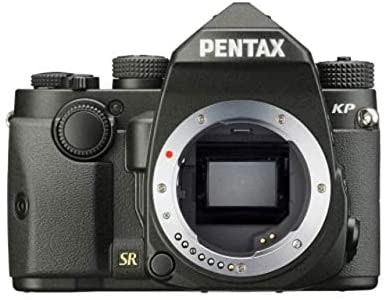
| Camera type | DSLR |
| Resolution | 24.3 MP |
| Weight | 1.41 pounds |
| Battery type | Rechargeable lithium-ion |
| Magnification | Adjustable with lens (not included) |
If you want a top-notch DSLR camera but don’t want to deal with all the bulkiness that that usually involves, the Pentax KP Compact is what you want. It still gives you all the high-quality results that you would expect from a Pentax camera.
The photo resolution is extremely high, and with a lightning-fast aperture speed, it can capture moving objects or people with ease. It also responds well to different lighting, so you don’t always need ideal conditions to get professional-quality results.
Furthermore, while it has a compact design, you get all the features of a DSLR, which means you can easily upgrade it to get whatever you want.
However, it is a slightly expensive option, especially when you consider that it doesn’t come with any lenses. You’ll need to purchase one to use this camera, and that can add a few hundred dollars to the cost of the setup.
- High photo resolution
- Easy to use
- Does a great job capturing moving objects
- Easy to upgrade
- Responds well to different lighting environments
- Does not come with any lenses
- Slightly expensive
7. SeaLife Micro 3.0 Camera
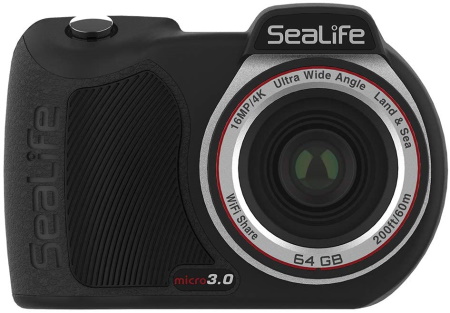
| Camera type | Compact |
| Resolution | 16 MP |
| Weight | 11.6 ounces |
| Battery type | Rechargeable lithium-ion |
| Magnification | 1x |
You’ll want to consider the SeaLife Micro 3.0 if you need a camera that can take high-quality photos underwater. It does so at a price that might surprise you. It works exceptionally well both above and below water, and you can even record in 4K!
Even better, it has 64 GB of built-in storage, so you don’t have to worry about an SD card, and it can transmit everything through Wi-Fi to an app that you can put on your smart device.
But with all these great features come a few limitations. First, there’s a limited magnification range. Second, while the 16-megapixel photo resolution is nice, it is much smaller than some higher-end options.
Finally, if you do decide that you need more magnification or something else, this camera simply can’t do it. But if you need to take photos underwater, you’re not going to find a better choice.
- Affordable
- Works both above and below water
- Easy to use
- Can record in 4K
- Has an easy-to-use app to share photos
- Comes with 64-GB built-in storage
- Not easy to upgrade
- Low photo resolution
- Limited magnification range
8. Pentax K-70 Digital Camera
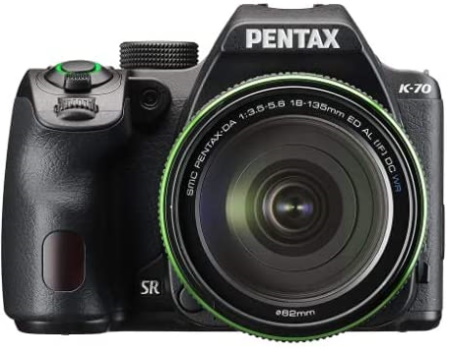
| Camera type | DSLR |
| Resolution | 24 MP |
| Weight | 1.52 pounds |
| Battery type | Rechargeable lithium-ion |
| Magnification | Up to 7.5x (adjustable with lens — not included) |
The Pentax K-70 is a top-notch choice for many situations. This DSLR comes with an 18-135 mm lens, but you can always upgrade to a different option if that’s what you want. Everything about this camera is easy to use, and compared to some other Pentax cameras, it’s a great value for everything that you’re getting.
You get a high photo resolution at 24 megapixels, but in other ways, it’s not as sharp. It’s not great at capturing moving objects or people, and it can’t bring in that much light.
But if you’re on a tight budget and want a Pentax camera, it’s certainly worth considering.
- High photo resolution
- Comes with a powerful lens
- Great value for what you’re getting
- Easy to upgrade the lens
- Durable
- Easy to use
- Lower quality camera compared to other Pentax options
- Not great at capturing moving objects
9. Panasonic Lumix S5

| Camera type | DSLR |
| Resolution | 96 MP |
| Weight | 1.39 pounds |
| Battery type | Rechargeable lithium-ion |
| Magnification | Adjustable with lens (not included) |
If you’re not on a budget and don’t mind spending a ton of cash, you might want the Panasonic Lumix S5. You won’t find another camera on this list with a photo resolution even near the 96 megapixels that this one offers, and it can record in full 4K with 180 frames per second.
It also does a great job of collecting light and rendering images, making it an outstanding choice for low-light situations like astrophotography.
Since it’s a DSLR, you can purchase lenses to get whatever you need, and it has autofocus and image-stabilization features that enable you to get professional-quality images in less-than-ideal situations.
It is expensive, though, and doesn’t come with any lenses. If this is the camera that you want, you better be ready to spend quite a bit of money to get it. But if you are, we’re confident that you’ll love the results.
- High photo resolution
- Picks up even small amounts of light — great for astrophotography
- Includes autofocus and image stabilization
- Adjustable to whatever you need
- Provides high-quality photos and video
- Does not come with any lenses
- Expensive
10. FujiFilm X-T4 Digital Camera

| Camera type | Mirrorless |
| Resolution | 26.1 MP |
| Weight | 1.34 pounds |
| Battery type | Rechargeable lithium-ion |
| Magnification | Adjustable with lens (not included) |
While the FujiFilm X-T4 is a top-notch option. Not only does it produce stunning images with a 26.1-megapixel resolution, but it can also record in 4K.
It does a phenomenal job of capturing images and video of moving objects and people, and it’s super easy for beginners to use. Furthermore, it’s easy to upgrade the lens even though it isn’t a DSLR.
The tradeoff is that the FujiFilm X-T4 is expensive and doesn’t come with any lenses. It’s a great choice but it’s not cheap. Still, if you need professional-quality results and don’t mind spending more money, the FujiFilm X-T4 is phenomenal.
- 4K video recording
- High photo resolution
- Easy to upgrade
- Great at capturing moving objects
- Easy to use
- Does not come with any lenses
- Expensive

Buyer’s Guide: How to Pick the Best Digital Camera
With so many different options out there and so many specifications to sort through, it’s completely normal to have a few questions about picking out a digital camera. This buyer’s guide goes through everything that you need to know to make an informed decision and get the perfect digital camera the first time.
Different Camera Types
When you’re picking out a digital camera, one of the first things that you need to do is decide what type you want. Here are three different options: the mirrorless camera, the DSLR, and the compact camera.
Mirrorless cameras are what most professionals use now, although to get a top-notch mirrorless camera, you’re going to need to spend quite a bit of money. Mirrorless cameras can capture images faster and can record even if you don’t get a high-end option.
You can upgrade the lenses of mirrorless cameras, but the selection often isn’t quite as large as with DSLRs.
DSLR cameras are a top-notch camera choice, but now they’re far more common with hobbyists and amateur photographers. They give you the ability to take amazing photos, but they often don’t have the video-recording capabilities of mirrorless cameras.
DSLR cameras have tons of lens options, which gives you the ability to quickly upgrade to unlock more capabilities in different situations.
Compact cameras are far more limited than both DSLR and mirrorless cameras. They have a fixed lens, which means you can’t replace them or change them out.
However, compact cameras weigh less than other types of cameras, and more importantly, they cost less. If you’re looking for the most affordable option, it’s the compact camera.

What Resolution Do You Need?
One of the first things that people look at when picking out a camera is its resolution. The truth is that while photo resolution certainly matters in some situations, it’s not always “the end all, be all” that some people make it out to be.
Unless you’re zooming in on a certain portion of the image or displaying the image in a much larger manner, you might be paying for more pixels than you need.
For instance, 16-megapixel options can still print images up to 11” x 14” in perfect quality, and you’ll even get good results all the way up to 30” x 40”.
So, if you don’t ever plan on displaying the images larger than 11” x 14”, you’re not getting any noticeable differences by going with a camera with more megapixels.
Think about how you’re using the photos and what you need before automatically assuming that you need more megapixels to get the job done.
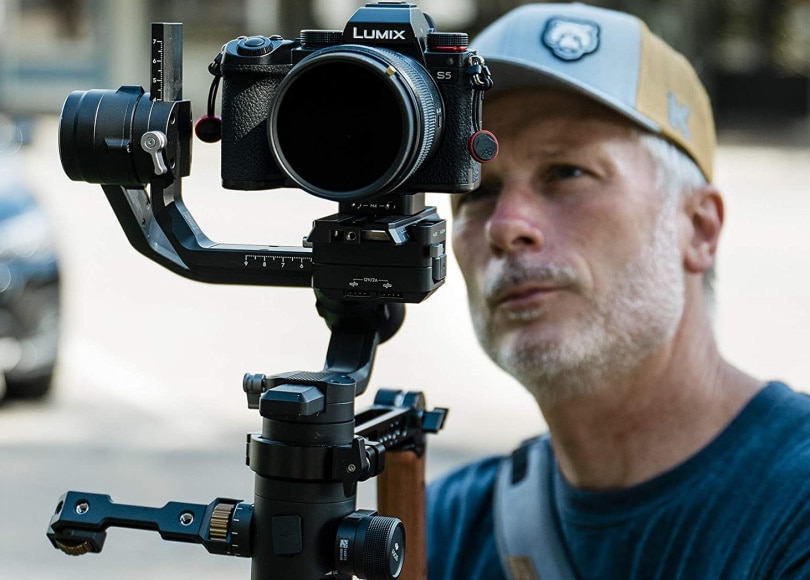
ISO, Aperture Speed, and Other Factors
When you’re looking at what each camera offers, two other numbers to look for are the aperture speed and the ISO. In short, the aperture speed refers to how fast the camera can open and close the lens to capture a photo. While this brings in less light, it leads to crisper images when things are moving. ISO, on the other hand, refers to how much light a camera can bring in. The higher the number, the better at collecting light the camera is.
In almost all situations, especially for amateurs and hobbyists, a higher ISO is a good thing and will lead to better results.

Conclusion
If you’re still trying to figure out what digital camera is right for you after reading through the reviews and buyer’s guide, consider going with our top choice, the FujiFilms X-T30. It’s an outstanding mix of price and performance and will do everything that you want and more.
If you are on a tight budget, the Ricoh WG-6 is also a great choice at a fraction of the cost. Just don’t wait too long — you want to get out there and start taking top-notch photos!
Featured Image Credit: Roman Samborskyi, Shutterstock
Table of Contents
- A Quick Comparison of Our Winners (2024)
- The 10 Best Digital Cameras
- 1. FujiFilms X-T30 Digital Camera — Best Overall
- 2. Ricoh WG-6 Digital Camera — Best Value
- 3. Pentax K-3 Mark III Digital Camera — Premium Choice
- 4. Pentax K-1 Mark II Digital Camera
- 5. Ricoh Digital Camera GR III
- 6. Pentax KP Compact Digital Camera
- 7. SeaLife Micro 3.0 Camera
- 8. Pentax K-70 Digital Camera
- 9. Panasonic Lumix S5
- 10. FujiFilm X-T4 Digital Camera
- Buyer’s Guide: How to Pick the Best Digital Camera
- Different Camera Types
- What Resolution Do You Need?
- ISO, Aperture Speed, and Other Factors
- Conclusion
About the Author Robert Sparks
Robert’s obsession with all things optical started early in life, when his optician father would bring home prototypes for Robert to play with. Nowadays, Robert is dedicated to helping others find the right optics for their needs. His hobbies include astronomy, astrophysics, and model building. Originally from Newark, NJ, he resides in Santa Fe, New Mexico, where the nighttime skies are filled with glittering stars.
Related Articles:
How to Clean a Refractor Telescope: Step-by-Step Guide
How to Clean a Telescope Eyepiece: Step-by-Step Guide
How to Clean a Rifle Scope: 8 Expert Tips
Monocular vs Telescope: Differences Explained (With Pictures)
What Is a Monocular Used For? 8 Common Functions
How to Clean a Telescope Mirror: 8 Expert Tips
Brightfield vs Phase Contrast Microscopy: The Differences Explained
SkyCamHD Drone Review: Pros, Cons, FAQ, & Verdict



